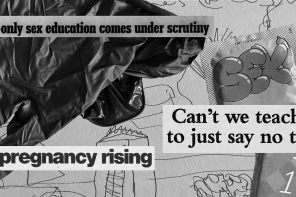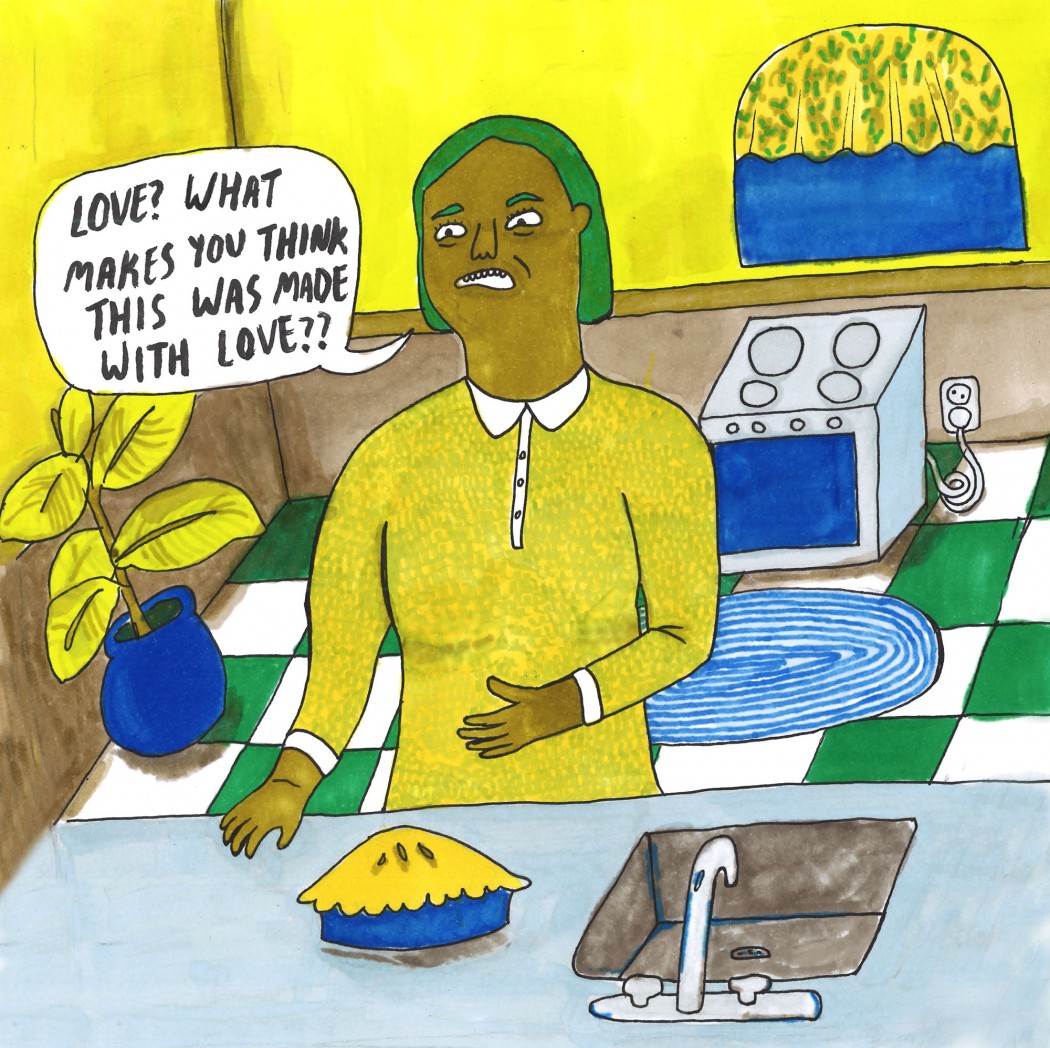Mari Luz Esteban is a feminist anthropologist who studies the body and human emotions. She teaches at the Universidad del País Vasco (UPV/EHU), where she is also a mentor for the pHd in Feminist and Gender Studies. Last August the 26th, she presented her book “Critica del Pensamiento Amoroso” (Critique of Love Thinking), (Barcelona: Edicions Bellaterra, 2011) in an event organized by COVEN BERLIN at Kleiner Salon.
In your book, you express your desire of contributing to an anthropology against love. I can image that has been a controversial statement: as you explained, we live in a society where the idea of love takes a central place, in which love seems to be the most important and fundamental thing in the world.
Yes, it is the case. When I tell people that I am working on love, I get all sorts of reactions. From women I get a lot of: “Are we going to criticize love too? Then there will be nothing left for us!” However, what I am against is an interpretation of love entirely based on culture and society; the notion that love is the natural base of this organization that is social, familiar, a matter of kin, and it is neither the only one nor a fair one. I like the quote of the Argentinean anthropologist Clara Coria, who says that love does not mean goodness, and that loving and being loved are not necessarily good things in themselves.
How would you define this interpretation of love?
For this, I am making a distinction between “romantic love” and “loving thinking”. By romantic love we understand several things. One of them is the visceral attraction between two people, which is a universal experience. Another interpretation is the constructed notion of romantic love as it exists in Anglo-european society, that has been cobbled together from other models. The latter is inextricably intertwined with heterosexuality, desire as the main component, and is the base of the subordination of women. In the first interpretation of love as attraction, anthropologist Willian Jankowiak recognizes four elements: idealization and erotization of the other, as well as the desire for intimacy and durability. However, we can affirm that these characteristics are present in all kinds of loving relationships, not only in the context of a couple. Here, many people would say, “But, what about my grandmother? I love her deeply, but I do not have any erotic feelings for her!” I believe that these four elements are present in every kind of love, but they are regulated very differently according to the context. The main problem is that through a very perverse cultural mechanism, we tend to remove all eroticism from the rest of our sentimental relationships and to focus them on a single one: the sexual-affective, the partner. We also put our relationships in a hierarchy, in which the partner is in the highest level, and the rest is less important.
However, this was one of the first questions of the debate after the presentation: “But what about my grandmother?” It is dangerously close to the taboos of incest and gerontophilia, which are fetishes that are almost unthinkable in our youth-obsessed society.
I think that the key is to rethink the meaning of the word “eroticism”. In our society, desire is inextricably intertwined with sexuality. However, there is another line of thinking that regards it as a way of expanding towards others, as an agency. I like Audrey Lorde, who explains eroticism almost like an energy that impels you to the other. That is why I use “loving thinking” as a political thinking system. This system is not only a way to speak about sex and affection between people, but more generally as a way of thinking, acting and feeling.
Which are the characteristics of loving thinking?
It is an ideology, a thought system, that shapes the way we think, how we understand life, our relationships, and how we relate to our bodies. It is a set of symbols, representations, rules and institutions- and love is placed in the center of it. Love then would be what gives our life sense and makes us different from animals. It creates the sexual division of labor, human relationships, institutions, social and family roles…
You mention that love affects men and women differently. You even say that romanticism is some sort of “patriarchy lite”. Why?
I believe that romanticism is the base of the subordination of people socially read as women, in the measure that it puts men and women in different positions of power. If you ask me what a woman is, socially, I would say, “A woman is somebody for whom love is the center of her life.” We women have to give everything to live a life dedicated to love. We have to give without measuring what we receive and that breaks one of the foundations of a fair relationship: reciprocity.
How do you imagine a fair kind of love?
I believe in three conditions for an equal love: besides reciprocity, mutual acknowledgement and redistribution (of power, symbolic and economic resources, etc.) are necessary. However, we can think in these three values without linking them to love. I can imagine a healthy society, a society where a person can be acknowledged without being necessarily loved, where you can have reciprocity without a sentimental relationship, where you can have redistribution without love. I think it is interesting to see it from both sides. I am a teacher. Am I a better teacher for loving my students? I do not think so, but women are asked to put love in everything we do. However, nobody would ask a man the same thing. Nobody would ask a male surgeon to operate with love. In fact, he would not normally operate on a family member.
How could we love without reproducing this patriarchy lite?
Deconstructing it, removing it from the center. In the book I formulate it as “Deny love to not become women”. If our interpretation is that love encourages women to give themselves up, to negate themselves, to make sacrifices… if we want to deconstruct the subject “woman”, we have to deconstruct, deny, desestructurate love. In other words, feminism has succeeded in deconstructing the myth of woman as a mother, the imposition that being the former equates being the latter, and that the value of a woman is determined by her reproductive organs. However, in our society the idea of a woman as a caretaker and woman as loving subject are still not dissociated. As feminists, we have still not solved this conflict, at least as a group. To this end, I think that one must remove love from its pedestal.
You finished your presentation with a beautiful quote from Zadie Smith, that ends with “[…] greeting cards routinely tell us everybody deserves love. No. Everybody deserves clean water. Not everybody deserves love all the time.”
Romanticism and loving thinking try to make us believe that being loved is more important than to live in equality. This author’s quote is for me the perfect criticism of the idea that love is better than justice, equity and solidarity. From my point of view, this is also why I regard the critique of loving thinking as politically relevant.
Interview by Angie Kohon
Translated by Esther Nelke
Edited by Harley Aussoleil
Illustration by Lauren Lim















